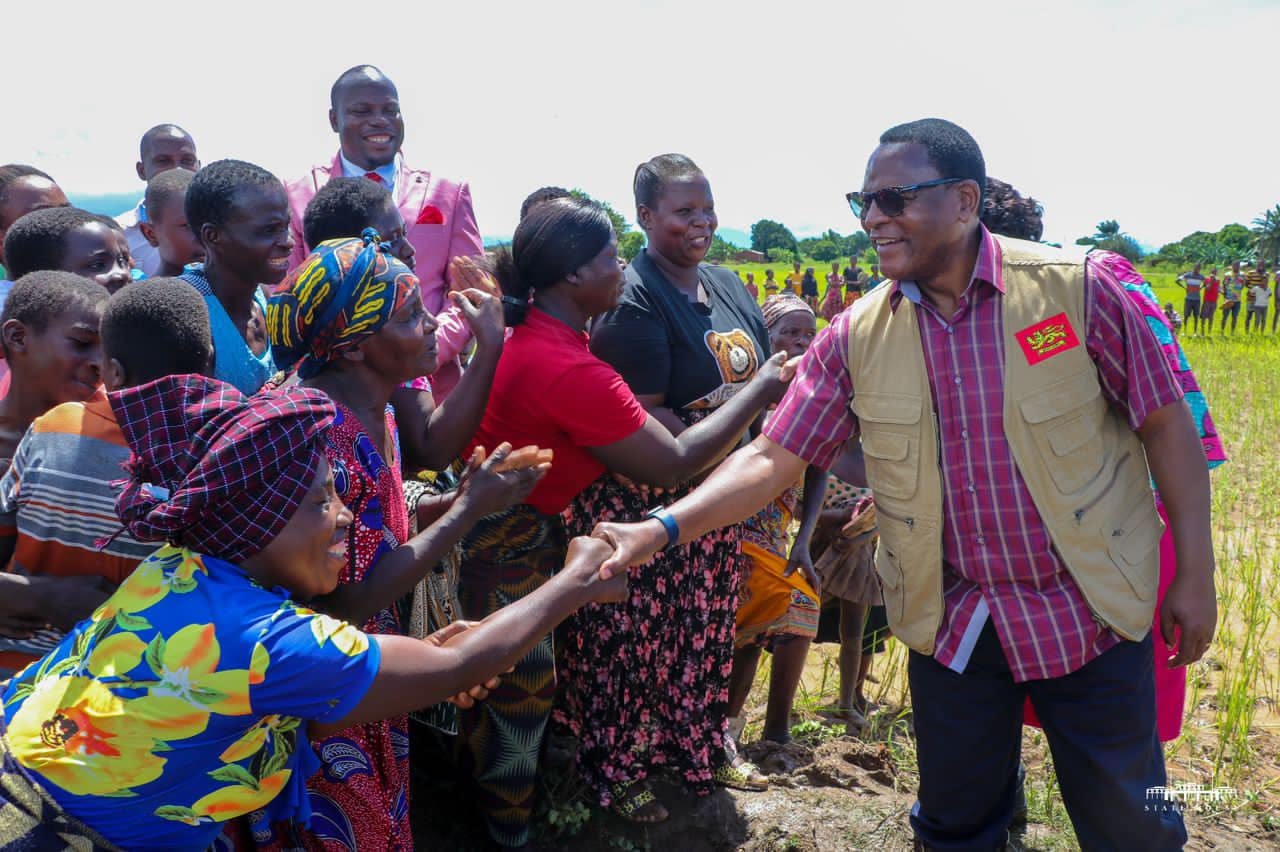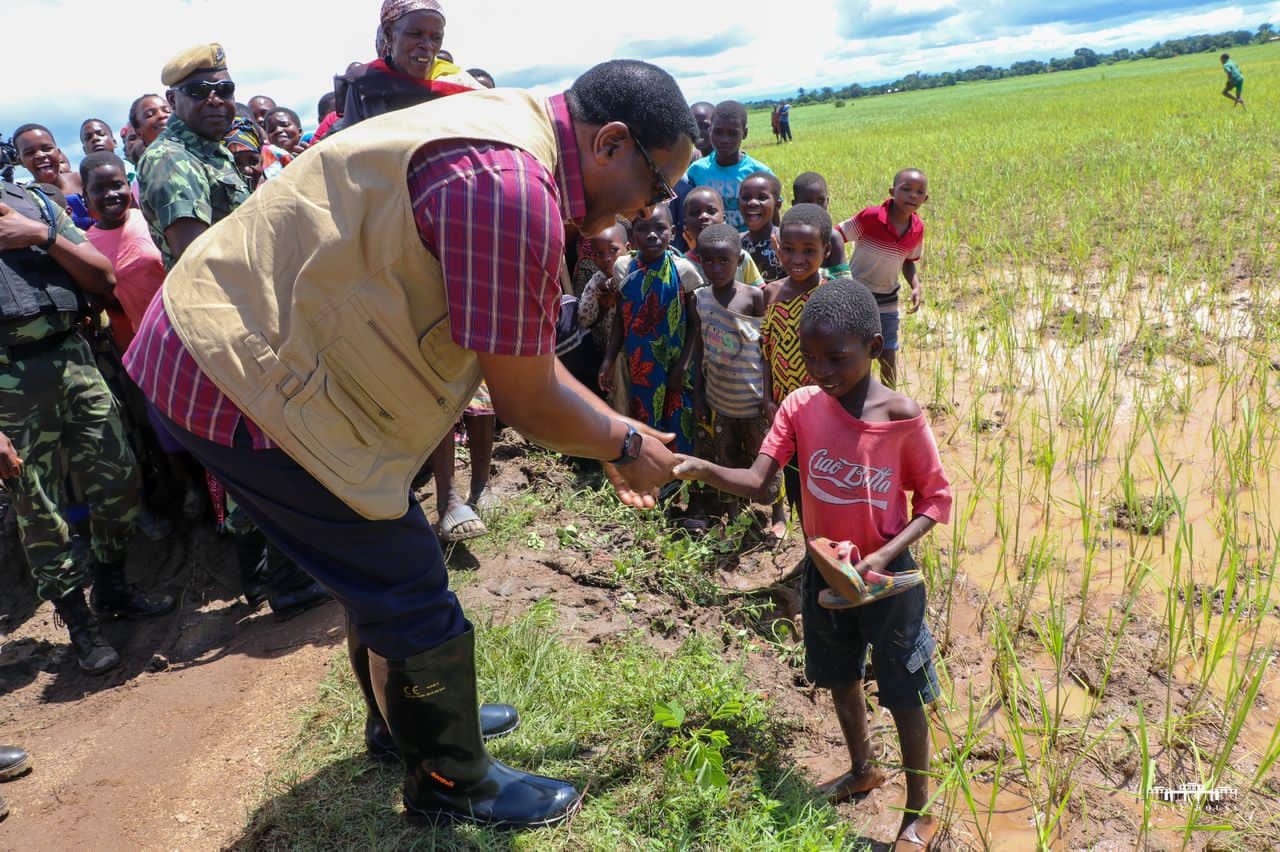Malawi President assesses cyclone and drought impact on crops in north
President Lazarus Chakwera is visiting the northern region of the country to assess the impact of Cyclone Freddy and drought on crop production in Karonga District, writes Winston Mwale.
Karonga, Malawi - Malawi President Lazarus Chakwera is visiting the northern region of the country to assess the impact of Cyclone Freddy and drought on crop production in Karonga District, writes Winston Mwale.
President Chakwera expressed concern over the dual impact of the natural disasters, which have resulted in a significant decrease in crop production, particularly in maize, rice, and sesame fields.
"I am currently in the Northern Region, where today I am undertaking a disaster impact crop inspection in Karonga District," said President Chakwera.
"The district has this year encountered a dual impact from drought and Cyclone Freddy, a deadly combination that has seen a manifold decrease in crop production, especially in maize, rice, and sesame fields."
Despite efforts to replant rice following the re-emergence of rains a couple of weeks ago, President Chakwera noted that chances for satisfactory yields are still slim for affected farmers.
He pledged his administration's multi-faceted response to help affected farmers and communities cope with the effects of the cyclone and drought.
"In the immediate term, the Department of Disaster Management Affairs is already on the ground distributing food and other relief items to the affected 38,605 households," President Chakwera stated.
"The Ministry of Agriculture will also assist the farmers in a number of ways, like supporting the replanting exercise of short-season crops such as sweet potatoes and cassava. They will also expedite the establishment of new irrigation schemes in Karonga Agricultural Development Division (ADD) to avert similar drought effects in the future."
President Chakwera emphasized the need for a climate-resilient agriculture regime to ensure sustainable and prosperous livelihoods for Malawian farmers.
"We must all remain committed to building a climate-resilient agriculture regime for sustainable and more prosperous livelihoods," President Chakwera concluded.





